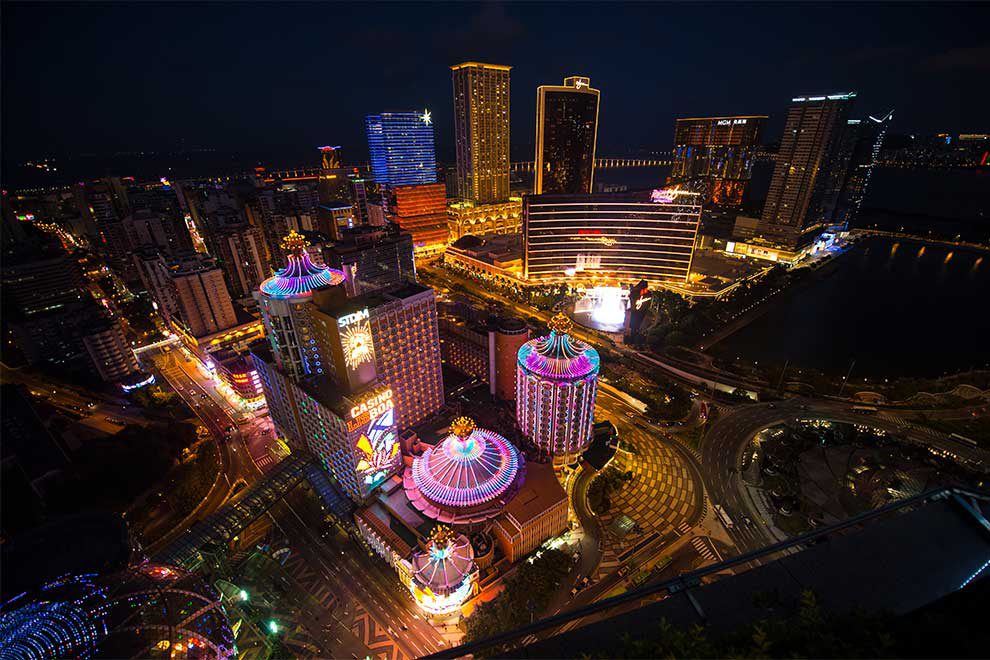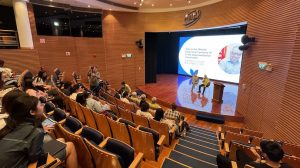The jury is still out on the impact of Macao’s rapid casino-led economic development on residents’ livelihoods. So concludes a study by 2 scholars from IFT.
“It is debatable whether casino tourism development has achieved the desired livelihood outcomes for Macao residents, despite casino tourism development being considered one of the mainstay activities and a primary tool to improve Macao residents’ livelihood,” scholars Dr. Jose But Wing Pong and Dr. John Ap wrote.
Their paper, “The impacts of casino tourism development on Macao residents’ livelihood”, was published last year in the academic journal Worldwide Hospitality and Tourism Themes. It was based on a combination of: semi-structured interviews with professionals, managers and individuals employed in either the tourism or non-tourism sectors; document analysis; secondary data; and personal observations.
“Residents in this study acknowledge and realise the benefits and costs of rapid casino tourism development,” Dr. But and Dr. Ap said. “Many interviewees agree that while the gaming industry has provided more job opportunities and overall income levels have increased, improvements in residents’ livelihoods and quality of life vary depending on the nature of the resident’s job and whether it is directly or indirectly related to tourism or gaming.”
Macao’s economy has recorded strong economic growth since the city’s casino industry was liberalised in 2002. The city’s gross domestic product (GDP) almost tripled between 2002 and 2016, while GDP per capita doubled during the same period, according to data from Macao’s Statistics and Census Service. The number of casinos rose from 11 as of 2002 to 41 following January’s opening of the MGM Cotai resort.
Uneven benefits
In their paper, Dr. But and Dr. Ap said “significant benefits from high employment opportunities and income” – connected with Macao’s casino-led economic growth – could be found across the city. But they added: “The poverty level in Macao has shown no significant improvement due to an increased and high cost of living.”
In their study, the researchers focused on impacts the city’s economic boom had had on 6 livelihood-related areas: employment; income; human resource issues; transportation; cost of living; and poverty.
The IFT scholars explained that often government officials directly assume that poor people and low-income earners will economically benefit from casino tourism development. “Unfortunately, for some economically disadvantaged in the community, they may need to work longer hours to meet their basic living standard. This is, no doubt, attributed to slow and lagging income growth as well as the increasing and high costs of living,” the IFT scholars said.
They reported that the majority of those interviewed for their study had mentioned that the cost of living in Macao had increased “significantly” in recent years. “Many workers reported that they had received salary increases, but that these increases did not compensate for rising prices,” the researchers noted, adding also that “higher salaries in the gaming industry have created a gap” compared to wages in other industries.
Dr. But and Dr. Ap said that over the past decade, the Macao Government had “focused disproportionately” on economic performance. “Economic growth has, no doubt, created employment opportunities, but this should not be considered as the sole means of development… The low-income and poor might [now] need to work longer hours to earn sufficient money for basic needs” and rely on Government subsidies, the authors stated.
The findings from their study also indicated issues for the local labour market regarding Macao’s casino-led economic growth. These included negative impacts “especially for the development of small and medium-sized local businesses” that had to compete with the wages and conditions offered to local workers by the casino operators.
Dr. But and Dr. Ap said that while “casino tourism has not contributed enough to reduce poverty… it is still an important tool, which may be used to reduce poverty, providing that the proper approach is taken.” To achieve that, the scholars advised policymakers and planners to take a “broader and better view of the consequences of casino tourism development”.
Their paper included suggestions – offered by interviewees that took part in the study – to address the negative impacts of casino tourism development on Macao residents’ livelihood. These included improving the city’s training and education systems, introducing a minimum wage for different industries, and ensuring a better community-wide distribution of revenue generated by the casino sector.
More info
Dr. John Ap is a Visiting Professor at IFT, where he heads the Global Centre for Tourism Education and Training. Dr. Ap is an internationally-renowned expert in the field of tourism. He has been involved in a range of consultancy projects involving tourism and recreation planning studies, theme park studies, and market research surveys. Dr. Ap holds a Ph.D. from Texas A&M University, in the United States. He joined IFT in 2016. Prior to becoming an academic in 1992, he worked for more than 11 years as a town planner in Australia, specialising in recreation and tourism planning.
https://doi.org/10.1108/WHATT-02-2017-0011









